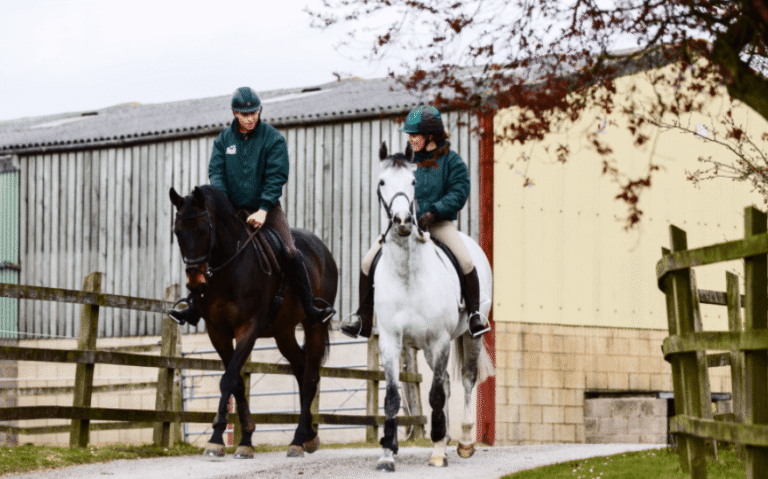When the starting gates fly open on race day, fans see powerful horses, skilled jockeys, and the thrill of competition. But behind every moment of glory lies months—sometimes years—of preparation. At the heart of this preparation is the horse trainer, the architect of a racehorse’s career. Trainers combine knowledge of equine physiology, psychology, and strategy to condition horses for peak performance. Without them, even the most talented horse may never reach its full potential.
This article explores the crucial role of trainers in preparing horses for race day, from daily routines to long-term planning.
1. Developing a Training Regimen
A racehorse’s fitness is carefully built over time, and trainers design personalized routines based on each horse’s age, breed, and temperament.
- Conditioning Workouts – Horses undergo a mix of gallops, breezes (short sprints), and long-distance training to build speed, stamina, and endurance.
- Strength Training – Hill work, resistance training, and varied track surfaces help develop muscle and resilience.
- Rest and Recovery – Trainers ensure horses don’t overtrain, balancing exertion with rest to prevent fatigue and injury.
The goal is to fine-tune the horse’s body to handle the intensity of race day.
2. Nutrition and Feeding
Diet plays a key role in a horse’s performance. Trainers collaborate with nutritionists and veterinarians to ensure horses receive the right balance of energy and nutrients.
- High-Energy Diets – Grains, hay, and specialized supplements provide fuel for racing.
- Hydration – Proper hydration is essential, especially in hot climates or during intense training sessions.
- Individualized Plans – Some horses require extra calories, while others need leaner diets to maintain optimal racing weight.
A horse’s diet is often adjusted daily, depending on training intensity and race schedules.
See also: Horse Racing Terms You Need to Know
3. Monitoring Health and Wellness
Trainers act as guardians of a horse’s physical health.
- Regular Checkups – Trainers oversee routine veterinary care, vaccinations, and dental exams.
- Injury Prevention – Early detection of lameness or muscle soreness helps avoid serious injuries.
- Therapies – Ice baths, massages, chiropractic care, and even acupuncture may be used to enhance recovery.
A healthy horse is not just faster—it is also safer on the track.
4. Mental Preparation and Behavior Training
Horses are highly sensitive animals, and their mindset can affect performance. Trainers work on building confidence and focus.
- Gate Training – Horses are taught to enter and break from the starting gates calmly.
- Noise and Crowd Exposure – Gradual exposure to loud sounds helps prevent nervousness on race day.
- Bonding and Routine – Consistency in training builds trust between horse, trainer, and jockey.
A calm, confident horse is more likely to perform well under pressure.
5. Coordination with Jockeys
Trainers and jockeys form a vital partnership, working together to bring out the best in a horse.
- Pre-Race Strategy – Trainers advise jockeys on the horse’s strengths (e.g., a front-runner vs. a closer).
- Post-Race Feedback – Jockeys provide insight into how the horse responded, allowing trainers to adjust training.
- Tactical Adjustments – Trainers may change riding instructions based on track conditions or competitors.
This collaboration ensures the horse has both physical preparation and a winning strategy.
6. Race Day Duties
On the big day, the trainer’s role becomes even more critical.
- Final Warm-Up – Trainers oversee light workouts to loosen muscles without draining energy.
- Paddock Preparation – They ensure the horse is saddled correctly, calm, and focused before entering the track.
- Last-Minute Instructions – Trainers provide the jockey with final strategy based on weather, track conditions, and field analysis.
A well-prepared horse often shows confidence and composure as it enters the starting gate.
7. Long-Term Career Management
Beyond individual races, trainers guide the entire trajectory of a horse’s career.
- Race Selection – Choosing the right races for the horse’s age, ability, and stamina is critical.
- Development Pace – Young horses are introduced gradually, while seasoned horses may be targeted toward elite stakes races.
- Retirement Planning – Trainers also play a role in determining when a horse should transition to breeding or other careers.
Good trainers don’t just think about one win—they plan for sustainable success.
8. Legendary Trainers in History
Some of horse racing’s most memorable moments were shaped by legendary trainers.
- Bob Baffert – Known for training Triple Crown winners American Pharoah and Justify.
- Sir Henry Cecil – Famous for his work with Frankel, one of the greatest racehorses ever.
- Todd Pletcher – A modern U.S. trainer with multiple Kentucky Derby and Belmont Stakes victories.
These trainers highlight how expertise, dedication, and intuition can elevate a horse’s natural talent to legendary heights.
Conclusion
While fans cheer for the horse and jockey, the trainer is the hidden strategist behind every race-day performance. From conditioning and nutrition to psychology and tactical planning, trainers shape every aspect of a horse’s preparation. Their knowledge and care can turn raw potential into racing greatness.
The role of trainers is not just about winning races—it’s about building trust, maximizing performance, and ensuring the health and happiness of the horse. In horse racing, champions are not born; they are made through dedication, patience, and the skilled guidance of trainers.
